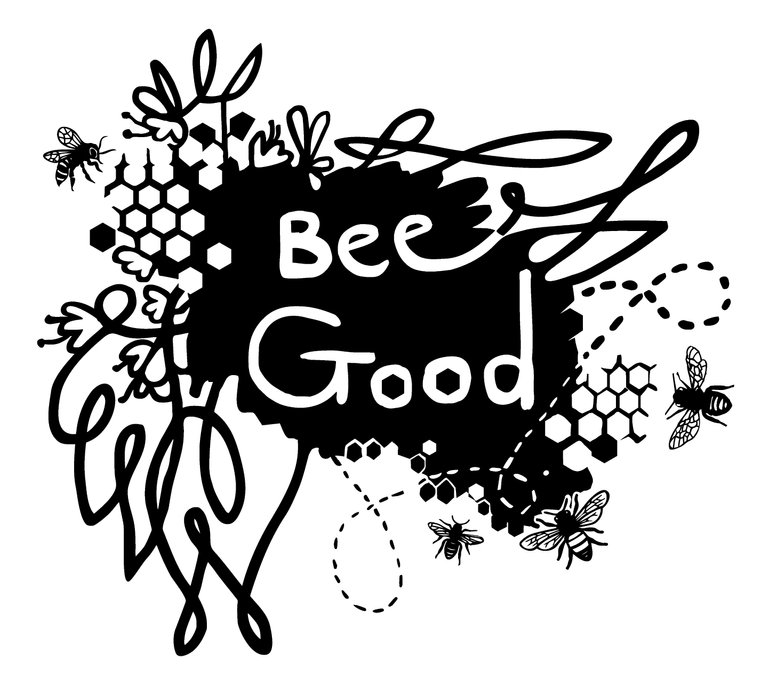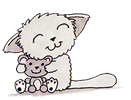People, especially in the west, often have this feeling of disconnectedness from nature. We live in our big cities or climate-controlled houses, buy our food from a market often in plastic packaging, travel long distances to "visit" nature, zoom through the world in cars, buses, and trains instead of slowly experiencing it in our bodies while we walk, ride a bicycle or wheelchair. We feel "cut off" and "unnatural." But my friends, you too are a part of nature, whether you realize it or not.
The next thought people often have is likening humans to parasites or locusts, using up all the resources even unto our own doom. But we're not that, either. All species effect the environment, in big and small ways. Some animals have a huge impact, such as when beavers build a dam that changes the course of a river; some have a smaller and more local impact. Humans are an apex predator species, and as any conservationist will tell you, apex predators have a very important role in the areas where they live. When white people removed wolves from most of North America, deer populations went crazy, which caused massive damage to the plant species as they were over grazing, and it became this huge domino effect. Everything is connected, and humans are no different.
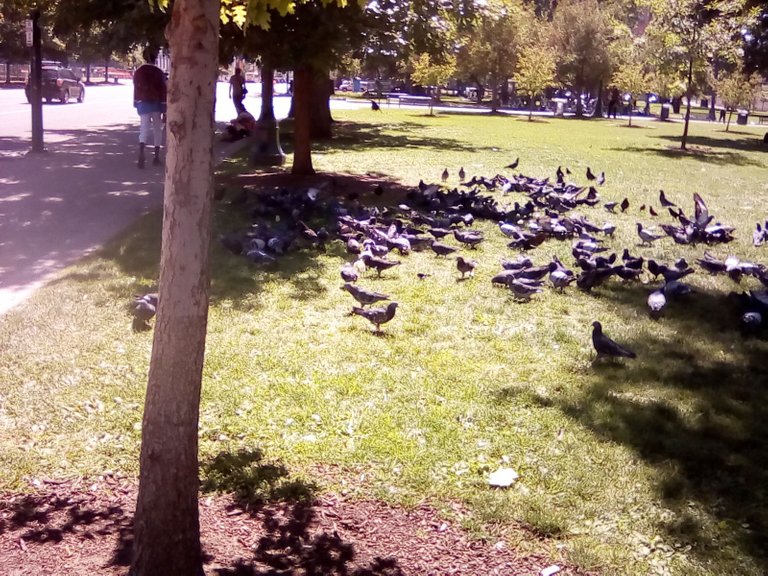
Civic Center Park, Denver
Westerners often feel like nature is "out there" in the remote areas that you might visit on vacation or go for a hike in, but discount the city they live in as also part of nature; but nature is all around us, even in our concrete jungles. Other species have adapted to human-built cities just as we have: there's a reason we call racoons "trash pandas," cats domesticated themselves due to all the rodents hanging out around our food supplies, dogs help us hunt and offer protection, and pigeons moved in to cities with humans and thrive there now, even though they are no longer used as messengers for people anymore. All these animals and more have adapted to our human habitats.
All species make their own habitats, too: birds building nests, various small animals building dens in the dirt, ants creating tunnels, bees building hives. We all alter the space to suit our living; it's a perfectly natural thing to do. Bees don't suddenly become "not nature" if they live in a human-built hive just as birds aren't expelled from the natural roll call if they build their nest on your front porch.
And not for nothing, but most of us didn't have any say in how our cities and countries were built; a lot of us wish things were different, but we don't have the social power to change it all by ourselves. A lot of the "bad" ways that humans have altered the landscape were driven by a small number of people seeking profit and power, not by the majority. What we need to do is realize that humans are social creatures, and use this to our (and the rest of the planet's) advantage, rather than our detriment.
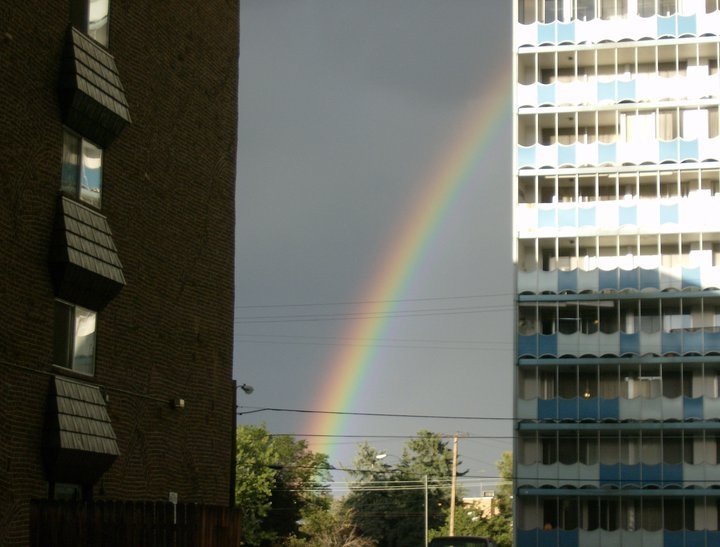
Even among the tall buildings, you can still be awed by the natural world
A lot of people are followers. Whether they're following political figures, celebrities of various kinds, religious leaders, or a crime boss, a huge number of people are more comfortable not being in the driver's seat and preferring to follow someone whom they deem as "knowing better than they do." This isn't always a terrible thing; it's rather humble if you think about it, but it can become dangerous when those with social power use it for terrible means. It's probably okay if you take your fashion cues from an influencer online; it's not great if you start spewing hatred and cruelty because someone convinced you that certain groups of humans aren't as deserving as you are of a decent life. A large group of humans banding together can wield a huge amount of power, for good or for evil. It's our responsibility to be discerning about what messages we are being fed, by whom, and to what end. What seems innocuous can sometimes be nefarious, and people, humble or powerful, need to be mindful of that. Don't let yourself be manipulated; always consider who profits from various ideas. Sometimes it's as simple as "a rich person makes more money," and other times it's "a powerful person turns everyday people against each other so none of them realize what he or she is up to and turn on them." We know that a lot of racism in the United States was literally engineered so that poor white people didn't join in solidarity with newly freed black people or Indigenous tribes against the rich landowners, instead making the poor whites fearful that the poor blacks would "take their jobs" and the like. The same dynamic is used against various immigrant groups today.
Now imagine, if instead of driving our society into the ground and making the majority of people suffer in some way or another as well as poisoning our environment, we used that eusocial power that humans have for good. What if we, as a mass movement, stopped paying attention to those who would use majority opinion to earn a quick buck or profit in some other way. What if we realized that we have more in common with 98% of humanity than we do with the 2% of rich and powerful people with outsized influence. What if, when some big corporation wanted to install an oil pipeline or build a fracking well near your kids' school, we just collectively said "nah" and refused for anyone to do the work? Those oil tycoons aren't going to go out there and dig the trench themselves, are they? What if, when a politician started banging the drums of war for political gain or so that their donors can become even richer, collectively, all the military said "nah" and NOT bomb innocent people for no reason? They can't court marshal everyone.
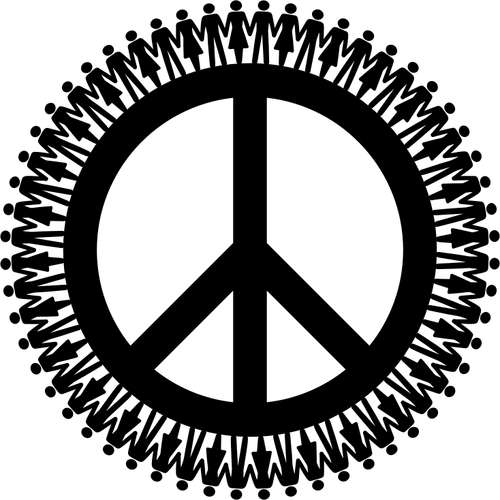
Public domain image here
Maybe these are rather extreme examples, but there are small examples too of how we can collectively decide to change things, if we get enough people on board, for better or worse. Rome wasn't built in a day, but neither did the Nazi party gain power overnight. Things tend to change slowly, slow enough that you don't see where it's going, because humans tend to be terrible at seeing things long-term. But those with a lot of power can plan long-term; they've got whole think tanks dreaming up strategies of how to turn public opinion in their favor. This is why you have to be mindful even when it seems like a small change; what is a snowball today can be an avalanche in the future.
So today I invite you to think big, think long-term, and think critically. Think about your role in the environment and plot a course for responsible action. Humans are aware of how much we can alter the landscape, it's time we decided to alter it for the better, to benefit everyone, plant and animal, long term. Think of the man who planted a whole forest; that's a massive change just from one person ...for the better!
Deciding that we're separate, or inherently bad and harmful, actually is another way that those who are profiting from the status quo can stop people from changing things. If you're too depressed with feelings of doom or guilt to do anything about it, then they've won, haven't they? It's time to get up, dust yourself off, see yourself as an embedded part of the natural world just as much as a tree or a tiger, and change your environment with intention, rather than by accident, without thought. Be a mindful participant and create a better world today!
